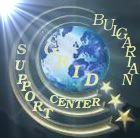 |
 |
|
|
|
Monte Carlo Algorithms for some transport problemsSummary of Doctoral Dissertation
In my dissertation, iterative Monte Carlo algorithms are proposed and studied for solving two types of problems for particle transport: particle transport of air pollution and electron-phonon quantum transport in semiconductors. In the first part of the dissertation, a simple mathematical model is considered: an elliptic boundary value problem, where the partial differential equation contains advection, diffusion and deposition parts. The suggested Monte Carlo (MC) method to solve this equation used a local integral representation with the Green's function for the elliptic boundary value problem. The studied approach leads to a random process called a random walk on balls. The corresponding iterative Monte Carlo algorithm uses an acceptance-rejection (AR) method as a sampling rule to obtain the values of the MC estimator. An optimal estimate for the efficiency of the AR method is obtained. It is proved that the algorithm efficiency depends on the radius of the maximal ball, lying inside the domain in which the problem is defined, and on the parameters of the differential operator. In the second part of the
dissertation, an efficient iterative Monte Carlo algorithm for solving
integral equations with polynomial non-linearity is studied.These
equations allow one to use the link between non-stationary
iterative processes and branching Markov processes. The algorithm uses
the so-called ``almost optimal'' transition density in the
branching Markov processes. It is proved that such a choice of
the density Varied numerical tests on the supercomputers CRAY Origin 2000 and IBM SP1 with 32 processors were performed. Parallel implementation of the algorithms above was also realized using the package ATHAPASCAN as an environment for parallel realization. The tests show good agreement with the theoretical results and a high level of parallel efficiency. In the last part of the dissertation, two quantum-kinetic equations accounting for the electron-phonon interaction are solved by using iterative MC algorithms. These equations are derived from linear and nonlinear models of the electron-phonon relaxation in optically excited semiconductors. Convergence of the Neumann series is proved for the integral equation in the linear case. In the nonlinear case, the quantum equation contains polynomial non-linearity, which allows one to use the MC approach in the second part of dissertation. Numerical results obtained for $GaAs$ material show stability of the electron energy distribution for short evolution times. 
Key words: Particle transport of air
pollution, Electron-phonon quantum transport, Monte Carlo methods, Ball
process, Selection method, Integral equations with polynomial
non-linearity, Quantum-kinetic equations, Random variables, Almost
optimal density function, Monte Carlo algorithms, Markov processes,
Parallel algorithms.
|
||||







